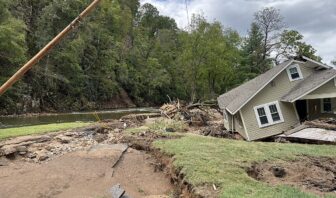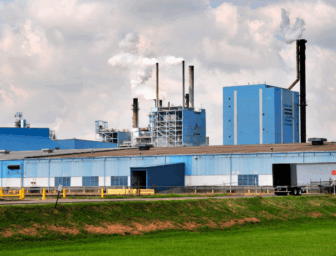One of Maryland
ROCKVILLE, MD – One of Maryland’s largest environmental organizations today defended Pepco against charges of poor storm-recovery service prior to a Maryland Public Service Commission hearing on electricity reliability. According to the Chesapeake Climate Action Network (CCAN), unusually extreme weather consistent with a pattern of global warming is the clear cause of the trend toward more massive power outages in recent months and years in the Washington, D.C. region, not Pepco incompetence.
CCAN director Mike Tidwell emphasized that, despite two major snow outages last winter and three this summer due to rain and wind, there is no objective data showing Pepco is significantly better or worse than other utilities nationwide at restoring power after storms.
“What’s clear,” according to Tidwell, “is that storms themselves are getting stronger. Irrefutable scientific data show extreme rain and snowstorms are rising along the East Coast in patterns linked to global warming. And this summer’s record heat in the D.C. region is just the latest in an upward, historic march toward more and more extreme heat here and around the world.”
Tidwell saluted efforts by Maryland’s utility regulators and elected officials to improve Pepco’s power reliability in the region, while acknowledging that day-to-day Pepco service has been sub-par compared to other electricity providers nationwide. But when it comes to the biggest and most painful power outages in recent years, the truth is that unusually extreme and violent weather is the cause, not Pepco’s storm recovery capacity. The company did not engineer the record snows, rains, winds and heat over the past twelve months in our region, for example. And there’s no data showing Pepco is sub par by national standards on storm recovery.
Said Tidwell, “Until we come ‘out of the dark’ on the issue of extreme weather, no amount of focus on Pepco will create a long-term solution.”
These extreme weather events are taxing all regional infrastructure – utility lines, roads, housing – in ways that can only be managed long-term through a switch to clean local energy, especially offshore wind power in Maryland. Tidwell emphasized that the best step lawmakers could take in the near future is to incentivize the development of utility-scale wind farms off Maryland’s Atlantic coastline.
Maryland’s dependence on fossil fuels and other states for its electricity supply leaves it vulnerable to further supply disruptions and price spikes. Offshore wind would provide a local energy supply, which is more reliable than electricity imported from out-of-state because it would allow Maryland to connect to the grid relatively close to where the power is needed. A recent study commissioned by the Abell Foundation found that there is enough harnessable offshore wind power in Maryland to provide the equivalent of two-thirds of the state’s current electricity demand.
ABOUT CCAN
The Chesapeake Climate Action Network is the oldest and largest grassroots organization in Maryland dedicated exclusively to raising awareness about the impacts and solutions associated with global warming in the Chesapeake Bay region. For nearly a decade, CCAN has been at the center of the fight for clean energy and wise climate policy in Maryland, Virginia, and Washington, D.C. Working with partners across the state, CCAN has played a central role in Maryland’s adoption of such policies as the Renewable Electricity Standard (2004), the Healthy Air Act (2006), the Clean Cars Act (2007), and the historic Greenhouse Gas Emissions Reduction Act (2009).
###




